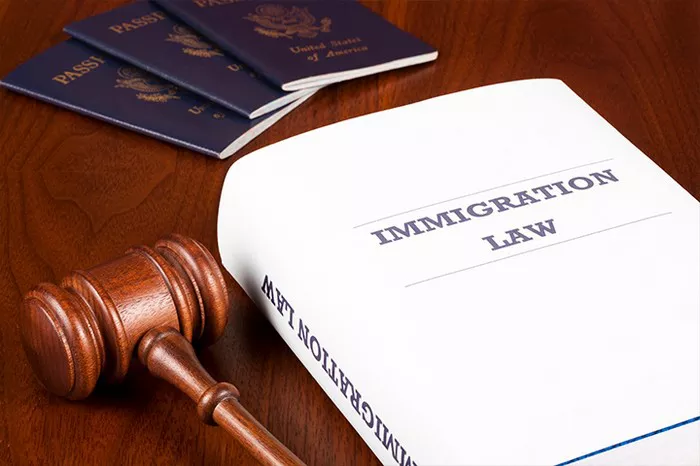In recent years, immigration laws and policies have been subject to intense scrutiny and frequent changes across the globe. From debates over border security to discussions about refugee resettlement, immigration remains a complex and divisive issue. Governments continually adapt their immigration laws in response to shifting demographics, economic needs, and political priorities. In this article, we will delve into some of the latest developments in immigration law, focusing on recent changes and their implications.
The Impact of Political Changes on Immigration Policy
One of the most significant factors influencing immigration law is the political landscape. Changes in government leadership often result in shifts in immigration policy, as new administrations seek to implement their agendas and fulfill campaign promises. For example, the United States experienced significant changes in immigration policy following the transition from the Trump administration to the Biden administration.
Under the Trump administration, immigration policies were characterized by strict enforcement measures, including increased border security, travel bans targeting predominantly Muslim countries, and efforts to curtail legal immigration through executive orders and administrative actions. These policies sparked widespread controversy and legal challenges, leading to heated debates over issues such as family separation and the Deferred Action for Childhood Arrivals (DACA) program.
In contrast, the Biden administration has pursued a different approach to immigration, emphasizing compassion, inclusivity, and a path to citizenship for undocumented immigrants. Shortly after taking office, President Biden signed several executive orders aimed at reversing many of the previous administration’s policies, including halting construction of the border wall, ending the travel bans, and initiating a review of the DACA program. The administration has also proposed comprehensive immigration reform legislation, including measures to provide a pathway to citizenship for millions of undocumented immigrants and reform the asylum system.
Changes in Immigration Enforcement and Border Security
In addition to shifts in political leadership, changes in immigration enforcement and border security have a significant impact on immigration law. Governments often adjust their enforcement priorities and strategies in response to perceived threats to national security, public safety, or economic interests. These changes can involve increased patrols, stricter visa requirements, or enhanced screening procedures at ports of entry.
For example, in response to a surge in migration at the U.S.-Mexico border, the Biden administration has implemented various measures to manage the flow of migrants and address humanitarian concerns. These measures include expanding alternatives to detention, improving processing capacity at border facilities, and increasing resources for asylum processing and refugee resettlement. The administration has also announced plans to overhaul the asylum system, streamline immigration courts, and address root causes of migration from Central America.
Legal Challenges and Judicial Interpretations
Immigration laws are subject to interpretation and challenge through the legal system. Courts play a crucial role in shaping immigration policy by reviewing the constitutionality of laws and executive actions and providing guidance on their implementation. Legal challenges can arise from various stakeholders, including advocacy groups, affected individuals, and state and local governments.
In recent years, immigration-related litigation has focused on a wide range of issues, including the legality of executive orders, the scope of presidential authority over immigration policy, and the rights of immigrants in detention. For example, the Trump administration faced numerous legal challenges to its immigration policies, resulting in court rulings that blocked or modified certain initiatives, such as the travel bans and attempts to terminate DACA.
Similarly, the Biden administration’s immigration policies have faced legal scrutiny, with lawsuits challenging actions such as the suspension of deportations, the termination of the Remain in Mexico program, and the implementation of temporary immigration programs. These legal battles highlight the complexity of immigration law and the importance of judicial review in ensuring adherence to constitutional principles and protections.
International Cooperation and Multilateral Agreements
Immigration is increasingly recognized as a global issue that requires cooperation and coordination among countries. International agreements and frameworks play a crucial role in shaping immigration law and policy, facilitating collaboration on issues such as refugee protection, human trafficking, and migrant labor.
One example of international cooperation on immigration is the Global Compact for Safe, Orderly, and Regular Migration, adopted by the United Nations in 2018. The compact aims to enhance international cooperation on migration and promote human rights-based approaches to managing migration flows. While not legally binding, the compact provides a framework for countries to address common challenges and share best practices in migration governance.
In addition to multilateral agreements, bilateral and regional partnerships also play a significant role in shaping immigration policy. Countries often negotiate agreements on issues such as border security, visa reciprocity, and labor migration to advance their mutual interests and address shared concerns. These partnerships can involve information sharing, joint enforcement efforts, and capacity-building initiatives to enhance border management and immigration control.
Conclusion
In conclusion, immigration law is a dynamic and multifaceted field that is influenced by a wide range of factors, including political dynamics, security concerns, legal interpretations, and international cooperation. Recent developments in immigration law reflect ongoing debates and tensions surrounding issues such as border security, refugee protection, and the rights of migrants. As governments continue to grapple with these complex issues, it is essential to consider the human impact of immigration policies and strive for solutions that uphold fundamental principles of fairness, dignity, and respect for human rights.


